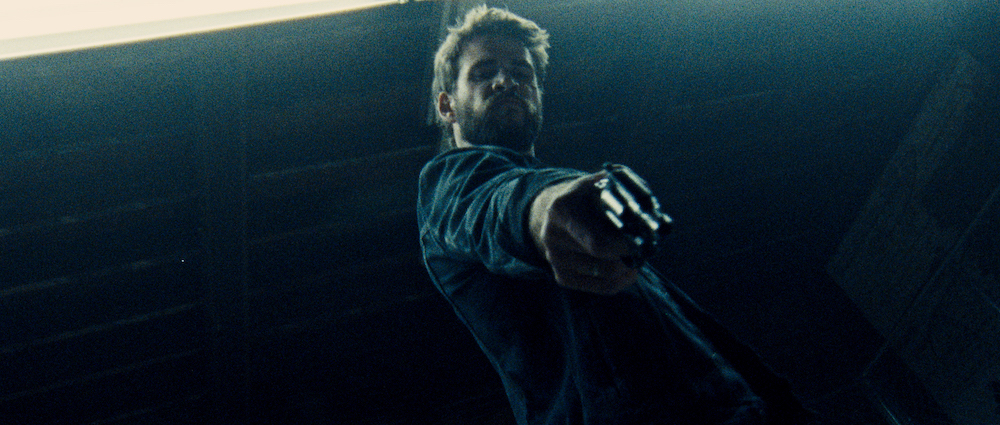“Cash Only” director Malik Bader is quickly making a name for himself in the world of crime thrillers, with his original script throwbacks to nitty and gritty tales of bad guys and even worse deals. His latest, “Killerman” (which had its world premiere at Fantasia last night), is a full immersion into the world of drug dealing, and throws in a unique existential angle to make excellent drama out of how money and product pass between bloodied hands. It’s the kind of movie that builds not just with its story but its ambition, and makes for an exhilarating, audacious crime thriller, provided you go along with the ride.
The mechanics of that process can make for a dry start to the story, initially: the opening scenes of “Killerman” take viewers from point A to point B to point Y when it comes to a money laundering deal. It’s a lot of footage of cars pulling up, of scowling men speaking in code so they aren’t caught by the cops. Soon into the story, though, Bader’s interest becomes our own with its two main characters: Moe (Hemsworth) has a partner in Skunk (Emory Cohen), and the two attempt to make a deal with the money of their boss Perico (Zlatko Buric) that could help them make it big.
But then “Killerman” slams into its inspired plot hook—Moe gets a concussion during a gruesome car accident with Skunk when the deal goes way wrong, and leads to a car chase through narrow NYC streets pursued by dirty cops. With a massive case of amnesia, Moe doesn’t know who he is, or what life he has made for himself. But instead of getting to rest, the drug deal has left too many loose ends, and Skunk puts him back in the clubs and in front of the people they know. While trying to fix the deal, Moe essentially has to take a tour through his life, seeing the people that he’s interacted with, and learning about his capacity for violence. The script builds itself out of this conceit, like how Guy Ritchie’s bold “Revolver” risked a crime story on a lead character’s schizophrenia, and Bader’s script is so committed and fast-paced with this psychological element that it only makes the intricate course of events even more fascinating.
“Killerman” proves itself to be as gritty as you want it to be, starting with the gorgeous dark colors of its 16mm Kodak stock, and the pulsing synth score that heightens the stakes of Moe’s actions. And that car chase—the editing is so sharp in this scene and others that you practically feel Moe getting that concussion as his vehicle slams into a parked car.
When it comes to violence, “Killerman” is always raw and unflinching, with men screaming for their lives after a bullet tears through them and blood spurts everywhere, or dogs ripping up human flesh in torture scenes that are nightmarish. The dirty cops hunting Moe and Skunk too (especially the one played by Nickola Shreli) are especially vicious, at the center of some of the story’s most ruthless scenes. From its initial framing as a movie that’s all about criminals—and virtually about wanting drug dealers to win—“Killerman” thrives in the darkness it establishes for itself, and that amorality becomes a fascinating component here like in the best of crime stories.
This relentless movie is unabashedly pulpy, in ways that do and don’t work within its desired genre charms. The dialogue sounds too stock, for example, and might make you wonder whether leather jacket thugs with slick haircuts only speak in cliches, or if the movies have just made them that way. (The performances are all around sturdy, even if you want Hemsworth to get a little crazier.) The same goes for the purpose that women have for the story, as mere stock love interests on the fringes of Moe and Skunk’s macho behavior, written to only that extent in a way that feels too lazy.
But on the other hand, “Killerman” creates an unexpected mythology with its more radical story choices; Bader displays a true recklessness in the best way and makes the story feel grandiose and intense. Even the reveal of the title’s meaning is a bold, polarizing choice—it may not work for some viewers, but it sure as hell left a smile on my face.












